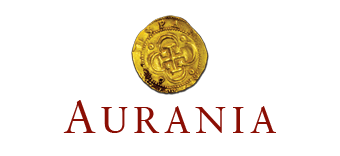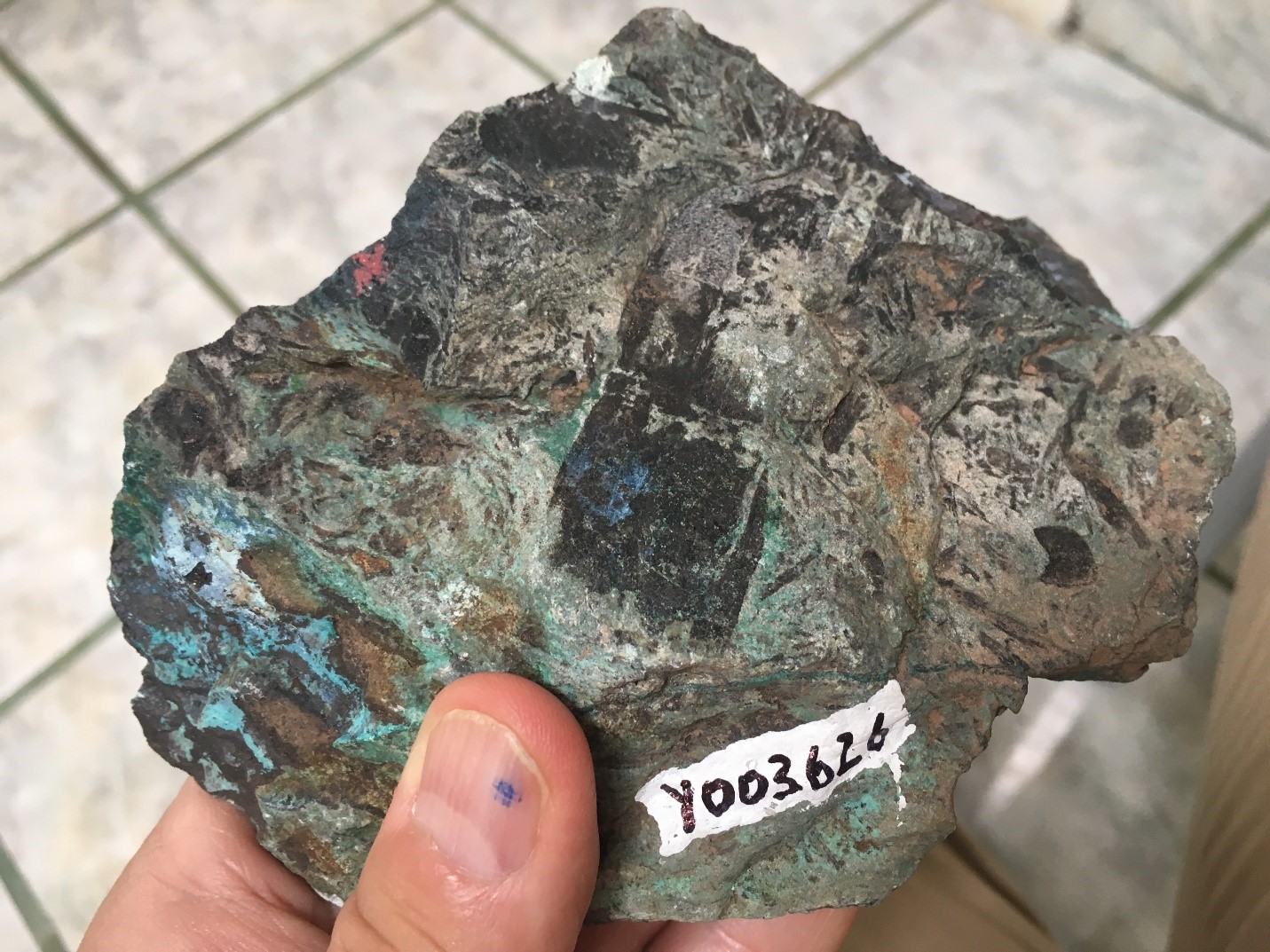Aurania Develops New Copper-Silver Exploration Concept
Toronto, Ontario, May 17, 2019 – Aurania Resources Ltd. (TSXV: ARU) (OTCQB: AUIAF) (Frankfurt: 20Q) (“Aurania” or the “Company”) announces that the Company has reassessed the exploration model for the discovered copper-silver mineralization on the Lost Cities-Cutucu Project (“Project”) in Ecuador in light of new observations from the field.
The sedimentary-hosted copper-silver mineralization found to date by Aurania is regional in nature and stratigraphically confined to key horizons of carbon-bearing sediments that have been verified in outcrop to extend for a minimum of 22 km (open along strike) across the Project area. There are few geological models that could account for this already very significant lateral extent.
Aurania’s Chairman and CEO, Dr. Keith Barron commented, “In October of last year our geologists, tasked to carrying out rather routine stream sediment collection, started to bring an extraordinary array of copper-mineralized large boulders and slabs in from the jungle. Some of these samples were covered in vivid green chrysocolla and malachite, with azurite, cuprite and even native copper as well as more drab chalcocite and tenorite. At first, we treated these as a curiosity, and believed they were related to the supergene weathering of nearby porphyries. However, the copper minerals were hosted exclusively in well-bedded siltstone, mudstone, sandstone and shale, particularly in pieces showing abundant carbonaceous plant fragments, and not in porphyry.”
“Our geologists, together with our President, Dr. Richard Spencer, traced these boulders back to outcrops, over what is now a strike length of 22 km. The copper mineralization appears to lie above a red-bed sequence of quartzose sediments in an overlying sequence of black shale with abundant carbonaceous plant trash (Figure 1). The setting is strongly reminiscent of the mineralized zones in the Kupferschiefer (“copper shale”), currently mined by KGHM in Poland.”
Exploration Concept
The general model for mineralization in the Kupferschiefer and the Central African Copperbelt of Zambia and the Democratic Republic of the Congo is that copper leached from the sedimentary basin remains in solution because of the oxidised state of the red sandstones (“red-beds”). Saline fluids from salt layers or domes within these sedimentary basins increase the solubility of copper, which forms stable, soluble copper-chloride complexes. Numerous salt domes are associated with the Jurassic red-beds in southeastern Ecuador. Salt is currently produced from two small artisanal operations on the Project. When these basins are reactivated, the saline, copper-bearing fluids flow along the layering of the rock sequence to the faults, which constitute barriers to the fluids, and the fluids tend to rise along these permeability barriers. Where the fluids come into contact with reduced sedimentary layers, such as carbon-bearing black shale or limestone, the copper precipitates.
The Jurassic basin in southeastern Ecuador has an additional positive component: magnetic data from the geophysics survey that Aurania flew over its Lost Cities – Cutucu Project in southeastern Ecuador identified a number of magnetic centres that are interpreted as porphyries or porphyry clusters. If this interpretation is correct, the porphyries represent an additional significant source of copper potentially injected into the red-bed sequence, that would have augmented the copper content of the basin. The porphyries would be related to a late Jurassic island arc superimposed on the mid-Jurassic rift basin in which the red-beds accumulated.
To date, copper-silver mineralization has been found both in float boulders and in outcrop on the surface. No drilling has yet been performed in the area and the third dimension is unknown. A working hypothesis is that the mineralization is localized by an anticlinal fold axis which lies centrally within the Cordillera. With the exception of a single sample of bornite-chalcopyrite, interpreted as hypogene mineralization, all samples have been oxidized, and would probably be amenable to SX-EW (solvent-extraction electrowinning) processing, without the need for production of a sulphide concentrate.
Epithermal gold-silver targets and search for the “Lost Cities”
It is not the intention of the Company to abandon its original exploration ideas in favour of sedimentary copper and silver exploration. Aurania has currently carried out stream-sediment reconnaissance on circa 40% of the 208,000-hectare Project area and intends to continue this work which so far has been very productive. First-pass scout diamond drilling on Crunchy Hill has been completed and we expect to have assays back from the lab in the coming weeks. The drill will be moved to the Yawi target in the near future.
Figure 1. Mineralized hand sample from the Ecuador Project of shale with prominent carbonized plant stem and leaf fragments. This sample assayed 6.37% copper and 48.04 g/t silver.
Qualified Person
The technical information contained in this news release has been verified and approved by Jean-Paul Pallier, MSc. Mr. Pallier is a designated EurGeol by the European Federation of Geologists and a Qualified Person as defined by National Instrument 43-101, Standards of Disclosure for Mineral Projects of the Canadian Securities Administrators.
About Aurania
Aurania is a junior mineral exploration company engaged in the identification, evaluation, acquisition and exploration of mineral property interests, with a focus on precious metals and copper. Its flagship asset, The Lost Cities – Cutucu Project, is located in the Jurassic Metallogenic Belt in the eastern foothills of the Andes mountain range of southeastern Ecuador.
Information on Aurania and technical reports are available at www.aurania.com and www.sedar.com, as well as on Facebook at https://www.facebook.com/auranialtd/, Twitter at https://twitter.com/auranialtd, and LinkedIn at https://www.linkedin.com/company/aurania-resources-ltd-.
For further information, please contact:
| Carolyn Muir
Manager – Investor Services Aurania Resources Ltd. (416) 367-3200 |
Dr. Richard Spencer
President Aurania Resources Ltd. (416) 367-3200 |
Neither the TSX Venture Exchange nor its Regulation Services Provider (as that term is defined in the policies of the TSX Venture Exchange) accepts responsibility for the adequacy or accuracy of this release.
Forward-Looking Statements
This news release may contain forward-looking information that involves substantial known and unknown risks and uncertainties, most of which are beyond the control of Aurania. Forward-looking statements include estimates and statements that describe Aurania’s future plans, objectives or goals, including words to the effect that Aurania or its management expects a stated condition or result to occur. Forward-looking statements may be identified by such terms as “believes”, “anticipates”, “expects”, “estimates”, “may”, “could”, “would”, “will”, or “plan”. Since forward-looking statements are based on assumptions and address future events and conditions, by their very nature they involve inherent risks and uncertainties. Although these statements are based on information currently available to Aurania, Aurania provides no assurance that actual results will meet management’s expectations. Risks, uncertainties and other factors involved with forward-looking information could cause actual events, results, performance, prospects and opportunities to differ materially from those expressed or implied by such forward-looking information. Forward looking information in this news release includes, but is not limited to, Aurania’s objectives, goals or future plans, statements, exploration results, potential mineralization, the corporation’s portfolio, treasury, management team and enhanced capital markets profile, the estimation of mineral resources, exploration and mine development plans, timing of the commencement of operations and estimates of market conditions. Factors that could cause actual results to differ materially from such forward-looking information include, but are not limited to, failure to identify mineral resources, failure to convert estimated mineral resources to reserves, the inability to complete a feasibility study which recommends a production decision, the preliminary nature of metallurgical test results, delays in obtaining or failures to obtain required governmental, regulatory, environmental or other project approvals, political risks, inability to fulfill the duty to accommodate indigenous peoples, uncertainties relating to the availability and costs of financing needed in the future, changes in equity markets, inflation, changes in exchange rates, fluctuations in commodity prices, delays in the development of projects, capital and operating costs varying significantly from estimates and the other risks involved in the mineral exploration and development industry, and those risks set out in Aurania’s public documents filed on SEDAR. Although Aurania believes that the assumptions and factors used in preparing the forward-looking information in this news release are reasonable, undue reliance should not be placed on such information, which only applies as of the date of this news release, and no assurance can be given that such events will occur in the disclosed time frames or at all. Aurania disclaims any intention or obligation to update or revise any forward-looking information, whether as a result of new information, future events or otherwise, other than as required by law.




